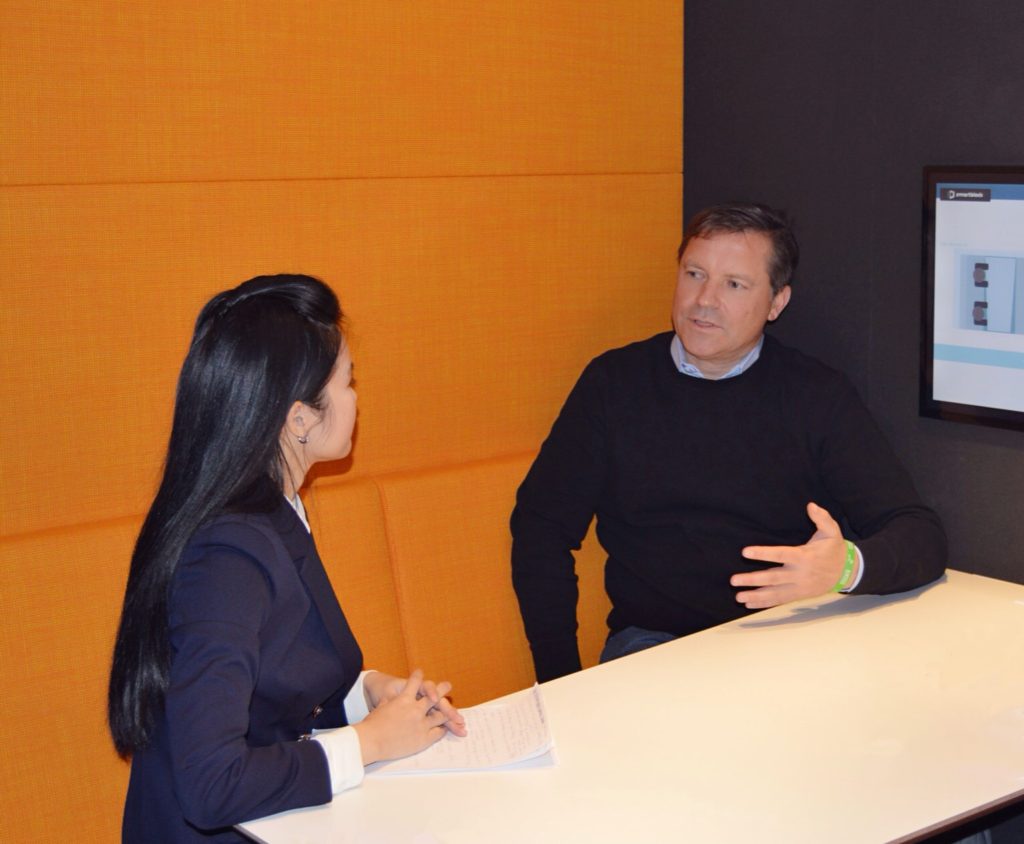Previously Mickos was the CEO of Eucalyptus Systems, acquired by Hewlett-Packard where he served as head of the cloud business. As the CEO of MySQL AB from 2001 to 2008, Mickos built MySQL into what seemed like one of the open source world’s biggest successes, with $1 billion acquisition by Sun Microsystems in 2008.Mickos is the recipient of Audemars Piguet Changing Times Award: European Entrepreneur of the Year 2006 and the Nokia Foundation Award. He holds a M.Sc. in technical physics from Helsinki University of Technology.
I was born and grew up in Espoo, Finland. I am the third of four children. My parents were both engineers by education. I had a normal childhood and did very well in school. As a kid, I spent a lot of time reading books. When I was 12, I read a book by Bertrand Russell on mathematical philosophy. Somehow, I found it very interesting, even though I didn’t understand one third of it.I think joining the Boys Scouts is how I got into the notion of leadership without knowing it was a leadership at that time. Just being a scout, going out on hikes and camps, going places and needing to get stuff done. At that point, you step up and do something. Soon enough, you are a leader. I would say from a leadership perspective, those experiences were the formative.
Did you have an idea of what you wanted to do for your career when you went to college?
No, I didn’t. I never really planned my career properly; it hasn’t come naturally to me. I have friends who set goals by a certain age. That didn’t feel natural to me. I’ve been much more spontaneous in terms of what I choose to do. I believe I am a rational pragmatic leader when setting goals and we achieve them together. And when it comes to me choosing what to do, I’m more spontaneous. Sort of taking the day as it comes.
What has been your biggest challenge?
Managing myself has been my biggest challenge. When you are a leader, you manage people and you have the comfort of observing them from the distance. And you can ask others, “What do you think about that person? What are you seeing?” and it becomes a rational job. Here’s the person’s strengths and weaknesses, and you manage it. But when it comes to yourself, you have to step outside and ask, “Am I now delegating too much or too little? Am I spinning too fast and not having the attention and presence needed?” That can happen to me at times I sort of go too fast. So you must manage yourself from all dimensions.
What are some important leadership lessons you’ve learned over the years?
Leaders must instill fairness and equitability, because human beings are very sensitive to the perception of fairness. People want to know that they have the same chance and that there is no favoritism.
I’ve also learned that when you lead people you must lead individually. You must instill fairness and sort of consistency across the organization. Yet when you lead people, you need to lead them individually and bring out their strengths and work with them to make their weaknesses irrelevant. In a large corporation, I can’t lead everyone individually by myself. But I lead a team that leads the team and that’s how you lead all of them.

As a leader, I’ve learned that you must build multiple leadership styles. You grew up with one, which is your native style and you also need to have five more, because of different situations. If I am only the natural me, I think I am an empowering leader and I lead from the front. I lead by doing and I lead by example and try to bring people with me.
Number one when we hire is to make sure the potential candidates fit with our culture. Every new hire must fit with every statement of our culture. During the interviews, I ask what motivates them, how they handle conflict, how they deal with other people. I observe how they act in the situation but also observe how they treat people when they come and leave the meeting. These give hints about conduct and culture.
Every time we have full management meeting, we end the meeting by rating the meeting and I let co-workers tell us what was wrong with the meeting. They rated on a scale from zero to ten. Sometimes, I would get some really tough feedback. I sometimes get 5 points. It’s painful, but I do this to improve the effectiveness of the meeting.I have a rule in the meeting that everybody should speak the same amount of time. If you want engagement by the whole group, then everybody must be heard. Some people are smarter, some have more to say, and you must moderate them and create balance. If somebody is not saying anything, I stop and ask, “What do you think?” I also interrupt others in order to make sure that everybody speaks.
Listen and learn. But don’t listen to all the advice. Don’t assume that all advice is suitable to you. Every single piece of advice has two sides of it. If one way is true, the other is not true. I use a concrete example because I advise entrepreneurs and one piece of advice is: Never give up. Another is: Don’t get stuck in what you are doing; give up quickly. You must find your own direction and your own style. Sometimes the purpose of advice is to highlight the wrong alternative. And when you take advice, you must know this.
